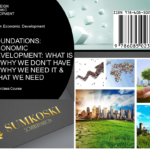
The United States, by elbowing France aside in a deal with Australia over military submarine purchases, has once again raised doubts about Washington’s commitment to the NATO alliance.
Washington has also highlighted the speed with which President Joe Biden is pivoting, at least militarily, to East Asia.
When Biden succeeded the oft-hostile Donald Trump, European allies expected that his revival heralded a new era of close cooperation. Instead, NATO has been hit with secretive decisions by Washington that suggest disdain for Europe in general and, in this case, top ally France in particular.
Most lately, there was Biden’s helter-skelter withdrawal from Afghanistan and a chaotic exodus of civilians that took place with minimal coordination with NATO allies. In April, when Biden made his decision to pull out, NATO had some 7,000 troops in the country compared with 2,500 Americans. When in July, Biden ordered the evacuation of the Bagram joint military air base in Afghanistan, he not only failed to inform the Afghan government ahead of time but also NATO.
Biden offended his eastern European allies by acquiescing to Germany’s request it bless Nord Stream 2, the natural gas pipeline that bypasses Ukraine and might give Moscow free rein to use energy as an economic weapon against them.
The submarine decision shows that the American new military focus east may disrupt traditional allies in the West. The sub deal with further suggests there may be more urgency than expected in bolstering a budding Indo-Pacific alliance to include Japan and India.
Biden is scheduled to meet with leaders from Japan, India and Australia in Washington on September 23. It will be the first face-to-face meeting of the so-called Quadrilateral Security Dialogue, also known as the Quad, which seeks to coordinate policies on several issues, notably China’s growing military power in East Asia.
The French were livid about the Australia about-face on submarines and US involvement. On Friday, President Emmanuel Macron recalled his ambassadors from Washington and Australia.

France – America’s oldest ally – canceled a Washington party to commemorate the 240th anniversary of the sea battle between French and British ships off Yorktown, Virginia. The French victory permitted troops under the command of George Washington to defeat the British and end the Revolutionary war.
Macron had signed a $100 billion deal to sell Australia 12 diesel-powered submarines. Secretly, the US countered by arranging to provide Australia with technology to build nuclear-propelled subs and to cancel the French order. Secretary of States Antony Blinken said France was informed in advance of the deal, but he declined to say when.
French Foreign Affairs Minister Jean-Yves Le Drian called the turn of events a stab in the back. “We had established a trusting relationship with Australia, and this trust was betrayed,” he said. He added France was given no heads-up on the change of plans.
Le Drian also launched an especially biting critique of Biden, comparing him to the despised Trump. “What concerns me as well is the American behavior,” he said. “This brutal, unilateral, unpredictable decision looks very much like what Mr Trump used to do. Allies don’t do this to each other.”
French Armed Forces Minister Florence Parly complained that the Americans had decided to push aside an ally “at a time when we are facing unprecedented challenges in the Indo-Pacific region.”
For all the hub-bub, the Macron government had not shown any enthusiasm for NATO possibly being dragged by the US into a confrontation with China. At the June NATO summit, Macron publicly threw scorn on the idea. “NATO is an organization that concerns the North Atlantic. China has little to do with the North Atlantic,” he said.
He wasn’t alone. Germany’s Chancellor Angel Merkel, described Russia, not China, as “a major challenge” and that NATO must not “simply negate China.”
“We have to find the right balance.” she concluded.
NATO had reserved its main worries about Russia. In its June communique, NATO descried Moscow as a “threat to Euro-Atlantic security.” China, on the other hand, “can present challenges.”

The submarine agreement was part of the new alliance called AUKUS, an acronym for “Australia, United Kingdom, United States,” a technology-sharing quasi-alliance that is clearly aimed at China.
China expressed anger. Chinese foreign ministry official Zhao Lijian said the US, UK and Australia, “Should abandon the obsolete cold war zero sum mentality and narrow-minded geopolitical concepts and respect regional people’s aspiration and do more that is conducive to regional peace and stability and development – otherwise they will only end up hurting their own interests.”
Zhao tried to link the submarine nuclear propulsion agreement to the dangers of atomic weapon proliferation, a subject of particular concern to Japan and New Zealand. “China will closely monitor the situation,” Zhao said. China has plenty of nuclear-propelled submarines and is adding to its armory of nuclear tipped missiles on land.
The more bellicose Chinese Communist Party news outlet Global Times announced that, “Australian troops are also most likely to be the first batch of western soldiers to waste their lives in the South China Sea.”
The possible short-term repercussions of this single event are many. The shrinking of NATO’s importance. China’s attitude toward hungry-for-trade, post-Brexit Britain. Fuether souring of already bad relations between China and Australia, driven down by Canberra’s criticism of Beijing’s policy toward its Muslim-minority Uighur population. And finally, increasing wonder about whether China will soon try to strangle Taiwan, the long-time breakaway region. Biden recently suggested the US would defend the island – only to be contradicted by his aides.
For sure, more Cold War-style feints and jabs on the way.
A former longtime foreign correspondent for the Miami Herald, Los Angeles Times and Washington Post, Daniel Williams currently writes from Rome.
The post US-Australia submarine deal rocks NATO alliance appeared first on Asia Times.




























